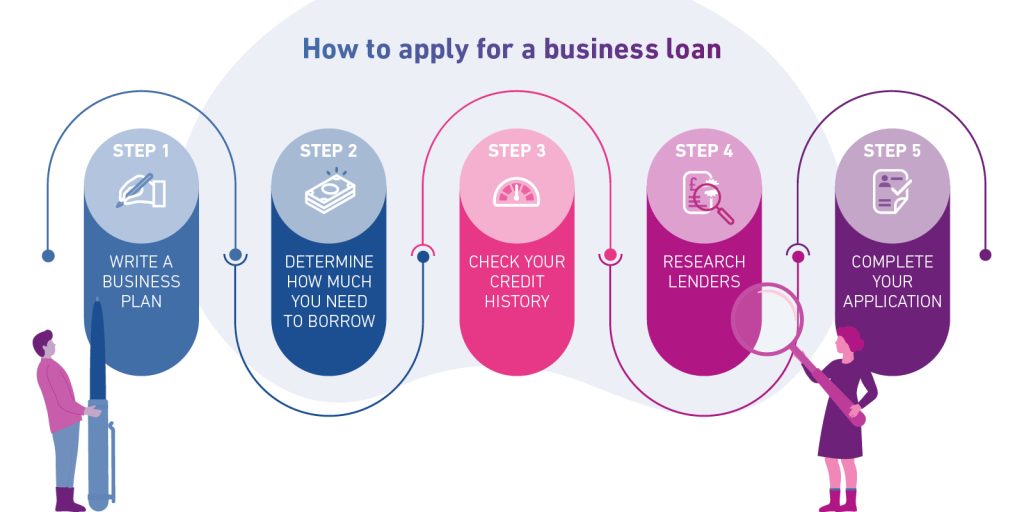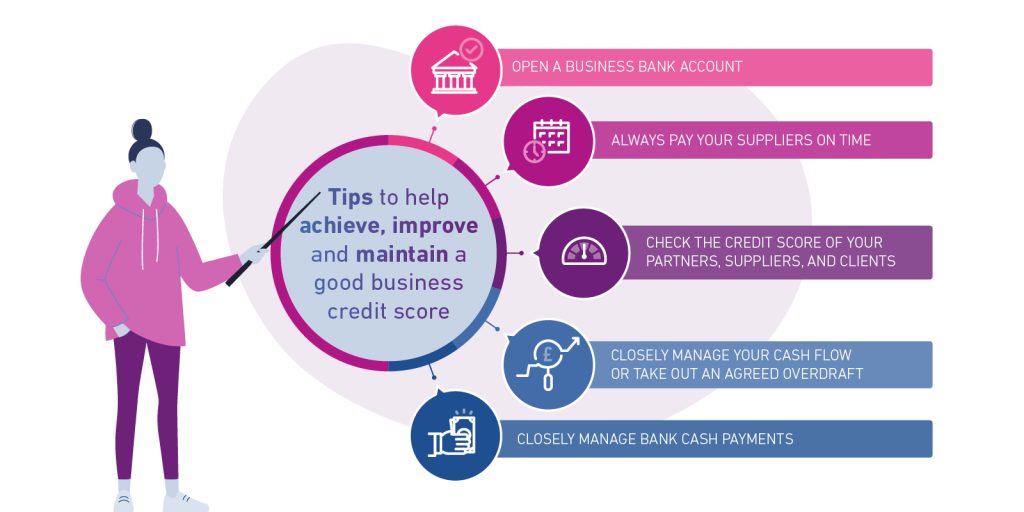Getting a business loan: Your complete guideTypes of business loans, how to apply for one, and calculate how much your loan could cost.
Guide
Our business loan calculator is one of the quickest ways to see how much your loan could cost.
To get an idea of monthly repayments as well as the interest you’d be paying, simply complete the following fields.
| Month number | Balance | Principal | Interest | Monthly repayment |
|---|
If you’re looking for some additional funding for your business, then a loan is often the quickest and most straightforward route. Funding most commonly comes from banks but with the explosion of digital finance tools and products, there are now more viable lending options than ever before.
It can be a confusing and sometimes overwhelming decision to know which type of small business loan to choose and how to apply. In this guide we explain more about the different types of loans available, how to apply for a business loan and finally, how to calculate what your loan repayments might be.
What is a business loan?
A business loan is a sum of money issued to a company for exclusive business use. That means the money can be used for anything to do with running the business, from operational costs to growth endeavours. The money is then repaid with interest over an agreed loan term.
Across the UK, companies of all sizes utilise outside funding to help with a wide range of business goals.
A small or medium-sized enterprise (SME) business loan tends to be smaller, ranging from anywhere between £10,000 to £500,000, and generally comes with lower fixed interest rates to help take the business from a small enterprise to a multi-million-pound company.
What is a business loan?
A business loan is a sum of money issued to a company for exclusive business use. That means the money can be used for anything to do with running the business, from operational costs to growth endeavours. The money is then repaid with interest over an agreed loan term.
Business loans are primarily used for growth, funding activities, and strategies such as:
- Expanding or moving business premises
- Hiring new and additional staff
- Undertaking new product development and launches
- Putting marketing or advertising strategies in place
- Completing management buyouts
When paired with the right business plan on how to spend the money, SME business loans can be a force for good. However, that doesn’t stop small business owners being hesitant about taking them on.
While access to loans remains fairly uncomplicated, many SME owners choose not to borrow.
However, by actively choosing not to borrow as opposed to being unable to access loans or other products, small businesses could be making life hard for themselves – even if they’re financially stable. The avoidance of credit may hinder their own advancement, such as their capacity to fund growth, development, etc. In addition, using credit responsibly can help them build a good credit profile.
Secured vs unsecured business loans
- Secured loans: a tangible asset such as a property is used as security for the lender so that if you fail to pay back the debt, the lender can sell the asset to make back their money.
- Unsecured loans: you can borrow the money without the need to provide an asset, making it less risky for your business.
Types of business loans
When seeking a loan, most SME applicants approach high street banks in the first instance, for a straightforward unsecured loan. However, if they’re turned down there, they tend to stop looking altogether. But there are plenty of other viable options that could be more suitable.
From high street banks to start-up loan specialists and peer-to-peer lending, each one will have different requirements, including terms and conditions, eligibility criteria, interest charges and repayment terms. Because of this, you’ll want to do your research on things like the interest rate they’re offering, their reputation as a lender, and whether any deposits or security are required.
Other funding options for SMEs include:
- Asset financing
Asset finance is a viable option for many SMEs who are just starting out or undergoing a period of growth. With cash often tight in both of these situations, it allows companies to spread the cost of necessary equipment and stock over a longer period, meaning there are no large upfront costs.
- Government grants
Obtaining a government grant can be time-consuming, challenging and competitive, but should you be successful you won’t have to pay the money back. These grants tend to focus on particular sectors and purposes, such as innovation, technology, training, and energy.
- Invoice financing
Invoice financing is a relatively quick and straightforward way to access funds, by using a company’s invoices as collateral. This option works for those who may struggle to obtain a business loan and can provide access to more working capital than other funding options.
- Working capital loan
Working capital is a vital element for all businesses, no matter their size, as it allows companies to purchase stock, pay rent and staff wages, and undertake day-to-day business essentials. While working capital loans can be useful for SMEs to meet everyday costs, they typically come with a high level of interest and a shorter repayment period.
- Peer-to-peer lending
Peer-to-peer lending is a form of direct money lending, without an official financial institution acting as the intermediary. This could mean a person directly loans the business capital needed. The risk is higher than traditional lending, but the returns could potentially be better.
How to apply for a business loan
Applying for a business loan may feel overwhelming, but as long as you’ve done your research and have the right documents in order, it’s just a series of straight forward steps:
- Write a business plan – putting your sales strategy, business structure, and financial forecast on paper will help show lenders that you’re a good candidate for a loan.
- Determine how much you need to borrow – as well as how much it’ll cost you. Having your numbers straight will help you find the best deal.
- Check your credit history – your lender will run credit checks, so be sure there’s nothing there that could hinder your application.
- Research lenders – each one will have different requirements, some better suited to your business than others.
- Complete your application – according to the lender’s own process.

Things to think about
How much do you want to borrow?
Having a clear idea and firm plans of how you will spend the loan money will allow you to calculate a realistic loan figure. Without this, you could be at risk of asking for a larger amount than you need, which in turn could be difficult to access. By borrowing the minimum amount you require, it’s likely going to be easier to find a lender and get a positive decision. Borrowing a smaller amount means more manageable repayments too.
How long will you need to pay the loan back?
If you want to pay the loan back quickly, traditional lenders may not provide the terms you’re looking for, so you’d need to look for alternative funding options. However, with a projected cash flow to help guide you, you’ll be in a better position to understand the repayment terms that your business can afford. Be sure to consider the interest rate for different term lengths too, as these could impact what you can ultimately afford to pay back.
How quickly do you need the money?
Despite the availability of quick-to-approve lenders, it’s never beneficial to feel forced into a loan with high interest rates just because you need access to funds quickly. Planning is key when it comes to business loans, so be sure to have a well thought-out road map that will give you and your business the most value in terms of interest and repayment time.
Improving your business credit score
When your business has a good credit score, more options for funding open up. So it’s vital to give your company’s finances and credit history a health check. The better your credit score, the better your chances for finding a business loan with the best interest rates.
It’s also important to know that while your business credit score is separate from your personal credit score, sometimes this can be checked too. If you’re a start-up for example, with no prior business credit history. Anything from a personal arrear to a county court judgement could potentially impact your company, so managing your personal finances will serve your business well.
To achieve, improve, and maintain a good business credit score:
- Open a business bank account to start a data footprint for your company.
- Always pay your suppliers on time.
- Check the credit score of your partners, suppliers, and clients to avoid risky business.
- Closely manage your cash flow or take out an agreed overdraft to avoid any unplanned overdraft issues.
- Closely manage bank cash payments, so lenders get a more accurate understanding of your turnover.

What you’ll need to apply for a business loan
- Business bank statements – to verify your company’s income and outgoings.
- Company directors and financiers – a list of everyone involved with the business at a certain level.
- Financial accounts – enabling the lender to see a clear picture of your company’s finances.
- Proof of ID and address – as verification.
- VAT returns – which are usually updated every three months.
How we can help
If you’re thinking about applying for a business loan, or are in the middle of doing so, and would like to give your credit score a health check, we can help.
Our ‘My Business Profile’ tool can give you the top five factors influencing your business credit score, to help give you the best chance of success when applying for business credit.
View your business credit score or speak to one of our experts.
View your business credit score
See your Experian Business Credit Score for free with My Business Profile
Let's go










